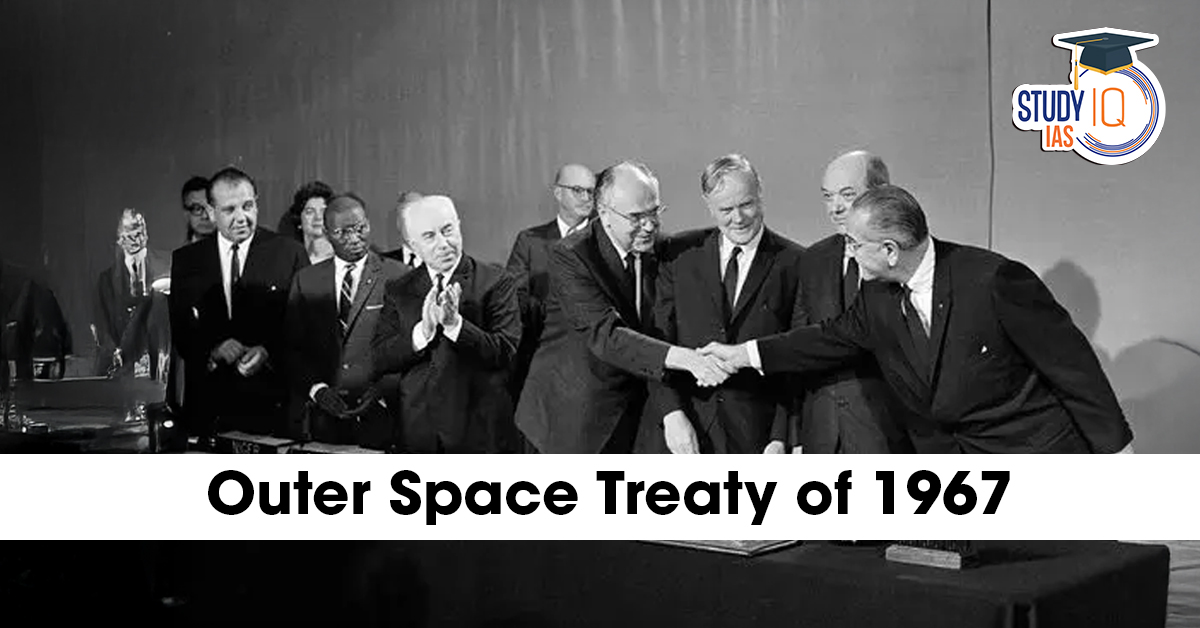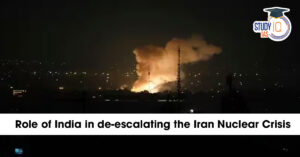Table of Contents
Context: India is pushing for a national space law to regulate its growing public and private space activities, as it currently lacks comprehensive domestic legislation to enforce international treaties.
Outer Space Treaty
- The Outer Space Treaty (OST), 1967 is the foundational international law regulating the exploration and use of outer space, including the Moon and other celestial bodies.
- It was shaped by Cold War diplomacy, during the intense rivalry between the USA and USSR in the “space race.”
- The launch of Sputnik in 1957 by the Soviet Union raised fears of space becoming a military battleground.
- To ensure peaceful utilisation, countries negotiated and signed the treaty in 1967, with 115 signatories, including India.
Key Provisions of the OST
- Peaceful Use of Space – Outer space, including the Moon and celestial bodies, can only be used for peaceful purposes; an arms race is to be avoided.
- Prohibition of Weapons of Mass Destruction – Deployment of nuclear or other WMDs in orbit or on celestial bodies is forbidden.
- No Sovereignty Claims – No government can claim ownership of outer space or celestial bodies; space remains a global common.
- Non-Exclusive Exploration – No country has exclusive rights over any particular region in space (e.g., the USA cannot claim the Moon despite landing first).
- State Responsibility – Nations are responsible for both governmental and private space activities and liable for any damages caused by their space objects.
- Astronauts as Envoys of Mankind – Astronauts are considered representatives of humanity; nations must assist them in distress and ensure safe return regardless of nationality.
- Environmental Protection – Activities should avoid contamination of celestial bodies and protect Earth’s biosphere.
Challenges & Contemporary Issues
- Rise of Private Companies – Firms like SpaceX, Blue Origin, Virgin Galactic are leading space missions, but regulations lag.
- Article VI Accountability – Governments remain accountable for private actors, yet national regulatory frameworks are weak.
- Space Debris – The growing number of satellites and missions increases the risks of collisions and long-term orbital debris.
- Militarisation Concerns – Ensuring peaceful use of space is difficult as nations expand defence-oriented space capabilities.
- Resource Exploitation – Uncertainty exists over whether mining celestial bodies (e.g., for minerals) violates the non-ownership clause, since exploration is allowed but ownership is prohibited.


 German Chancellor Visit to India in 2026...
German Chancellor Visit to India in 2026...
 Iran Nuclear Crisis and India’s Role f...
Iran Nuclear Crisis and India’s Role f...
 H1B Visa Program, Beneficiaries, Eligibi...
H1B Visa Program, Beneficiaries, Eligibi...




















